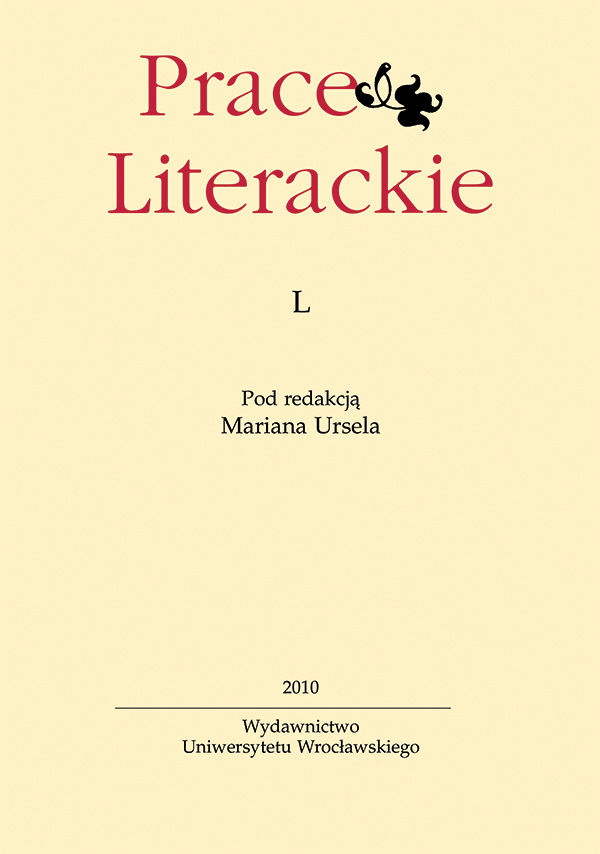

Artykuły

Fighting for the Word. An answer to Spirydion Prawdzicki
The article examines Psalmy przyszłości [Psalms of the Future] by Zygmunt Krasiński, Odpowiedź na “Psalmy przyszłości” [Answer to the “Psalms of the Future”] by Juliusz Słowacki and two polemic psalms added by Krasiński: Psalm of Sorrow and Psalm of Good Will. The author treats them as a dialogue and uses Bakhtin’s understanding of the dialogic word to describe it. Due to the limited scope of the publication, she focuses in particular on the second part of the dialogue, namely Answer to the “Psalms of the Future” by Juliusz Słowacki. She assumes that Bakhtin’s category of the word is related to the category of the act and resembles the Romantic philosophy of the act. Bakhtin, just like Romantic thinkers, looked at a word utterance from a pragmatic point of view. A word reveals an idea, which means that it is uttered responsibly as something true this does not exclude the use of any fictional elements in the utterance and as something that expresses our ideological, ethical and political choices made in this very historical moment. Bakhtin’s categories enable us to describe precisely the position of Słowacki’s reply to Krasiński’s Psalms. The author’s analysis demonstrates a very complex architecture of Answer to the “Psalms of the Future” in which we find all types of Bakhtin’s double-voiced words unidirectional, active and parodic words but also the author’s direct words. The analysis, carried out by means of Bakhtin’s categories, reveals both the inner complexity of historiosophical ideas of late Polish Romanticism, and intellectual, emotional and volitional relations between the two friends. There were great forces between them that connected them but also divided them. That is why Answer to the “Psalms of the Future” has its own dynamism. First we can notice its parodic and polemic elements which manifest themselves in the use of the double-voiced word. Then emerges, however, Słowacki’s single-voiced word which is presented as clearly opposite to Krasiński’s word. At the same time when the ideological opposition is revealed, we can see a strong emotional relation between the two men and Słowacki’s desire to rebuild the destroyed bond with his friend. The last part of the discussion, namely two psalms added later by Krasiński, shows the liveliness of Krasiński’s idea, flexibility of his imagination and breadth of his horizons. This is manifested in the creative transformation of his own ideas under the influence of the dialogue with his great adversary and under the influence of historical events of the Galician Slaughter. Psalm of Sorrow and Psalm of Good Will also seem to show that the friends can sustain their bond even though they may differ in their ideas about history and action.